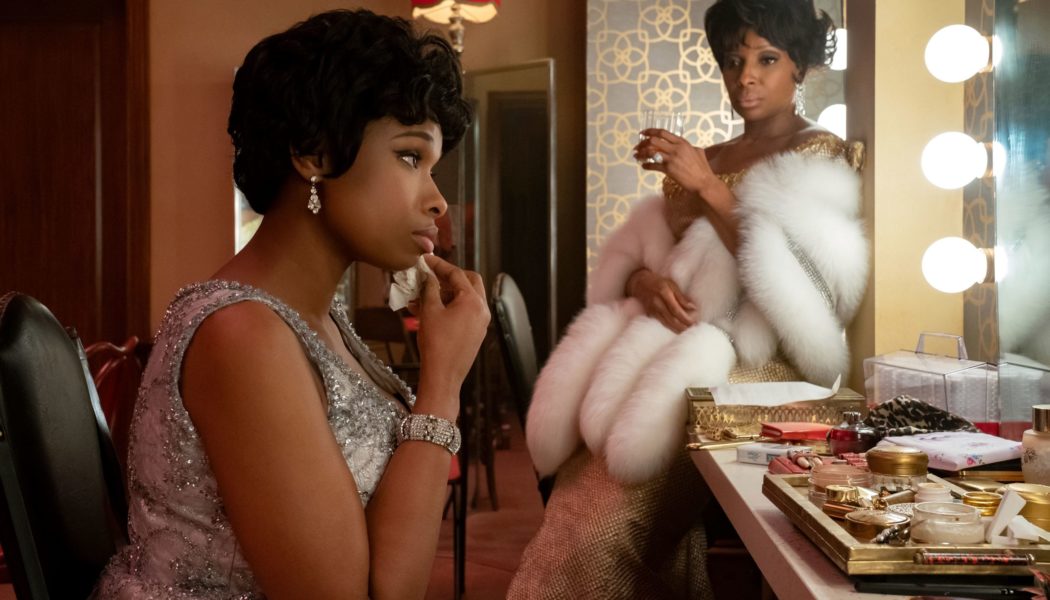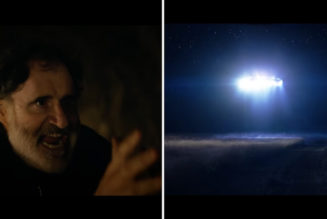The Pitch: A groundbreaking biopic is an inherent contradiction. When a beloved star dies, mourning fans want to relive their magic, not wallow in their darkness. Productions usually must tread lightly on the darkness, anyway, to avoid a lawsuit from a subject’s estate. And in Aretha Franklin’s case, even two and a half hours is not enough time to unpack the ways a Black woman, a victim of sexual assault raised in the Jim Crow era-turned- international superstar, could become a “diva.”
How does a dramatic retelling of a human being’s life avoid cliche?
The Queen of Soul’s story has been told before — first in a 1999 memoir with David Ritz, then in a more honest biography by the author in 2014, and most recently in a National Geographic docuseries. But her film has been in development for nearly a decade, and Franklin herself oversaw its production before her 2018 death — she even hand-picked Jennifer Hudson for its starring role. What would Respect do differently?
Portraying the first two decades of her career, the film — directed by Liesl Tommy from a screenplay by Tracey Scott Wilson — doesn’t stray far from previous material, following Franklin from her youthful days singing in her father’s Detroit church to the recording of her 1972 gospel album, Amazing Grace. Along the way we witness her biggest successes and failures, from marriages to record label switches to struggles with alcoholism. In these portrayals, it becomes clear the film was intended to match the peak of its subject’s career: glossy, captivating, and digestible — though still emotional.
Related Video
They Wanna Hear You Sing: When we first meet Aretha Franklin, she’s a 10-year-old girl (played by Skye Dakota Turner) entertaining the grown folks in her father’s church. “They wanna hear you sing,” C.L. Franklin — played here by Forest Whitaker — says, waking his daughter up to join his party downstairs. It’s clear right away that, in a family of talented voices, Aretha was the star.
The beginning of the film is a little heavy handed in expository dialogue like this. Mary J. Blige introduces herself by name as Dinah Washington, the “only” Queen of Soul. As Barbara Siggers, Franklin’s mother who died when she was nine, Audra McDonald has limited time to impart the wisdom that apparently shaped the singer. “If you ever don’t want to sing, don’t;” “Your daddy doesn’t own your voice;” “You don’t have to listen to any man,” she says, all in the same early scene.
Despite this stiff writing, the film introduces Franklin’s “demons” more delicately. An implied rape is compounded by the death of Siggers, causing Franklin to fall silent for weeks. C.L.’s violent response to this depression is the first sign that the revered Baptist minister and civil rights activist could have a dark side.
I Want Hits: When Hudson enters as adult Franklin, her career begins in earnest, and more key events unfold. Aretha and C.L., acting as her manager, travel to New York and sign to Columbia Records. She records a series of albums that fail to deliver a hit. Franklin meets Ted White (Marlon Wayans), and he, against C.L.’s wishes, becomes her husband and new manager. Franklin jumps from Columbia to Atlantic in search of a hit, and begins recording original rhythm and blues songs instead of jazz standards. Success suddenly comes.
While it sticks close to the script, the film’s second act proves captivating in its accuracy. Wayans is both alluring and frightening as White, whose controlling, jealous nature quickly descends into abuse. Marc Maron brings complementary humor as Jerry Wexler, the Atlantic executive who helmed Franklin’s infamous Muscle Shoals, Alabama recording session. Uncomfortable in the South and aiming to be taken seriously as a musician, racial and marital tensions between Franklin, White, and their white colleagues come to a head. As a consolation, Franklin scores her first hit with “I Never Loved A Man (The Way I Love You),” and we witness the singer’s gift of arrangement for the first time.
Respect leans in to a common understanding of Aretha Franklin: That, while a supremely talented figure of strength in public, she lived to be quite submissive in private. Whether C.L. or White, men primarily speak for — and over — her in her career. In a rare moment of outspokenness, she interjects in an argument between White and Wexler, but only to echo White’s demands and talk him down from violence.
This image of Franklin as an aloof figure is contrasted with Hudson’s electric performance of her as an artist. Late one night, she reworks Otis Redding’s “Respect” to more closely fit her experience, bringing in sisters Erma and Carolyn for backup. Gathered around a piano in their pajamas, the trio add the now-famous “Re Re Re”s, and it’s clear why the song was never associated with Redding again.
Amazing Grace: Every high must have a low, so a montage of scenes from Franklin’s successful era is followed by her Problem Arc. She lashes out at family and descends into alcoholism. The murder of family friend Martin Luther King, Jr. and the capture of Angela Davis pushes her toward radicalism, alienating her from her nonviolent (and hypocritical) father. Again, it’s all stuff you’ll find in any biography, but the cast’s performances make the transition from page to screen worth it. C.L. and White throw Franklin’s trauma in her face with a harrowing bite, and Franklin’s journey to escape their abuse is moving. This is when it’s especially nice to see two Black women helm a legendary Black woman’s story.
The Verdict: All of the events of Respect are to be expected. No new truths about the Queen of Soul are unearthed. But the film itself is well-crafted, and each performance brings storied characters to life. Most importantly, with Hudson’s vocal talent and dramatic diligence, her portrayal of an inimitable musician somehow manages to cast a spark of a light now burned out.
Where’s It Playing? Jennifer Hudson demands Respect in theaters August 13.
Trailer:










